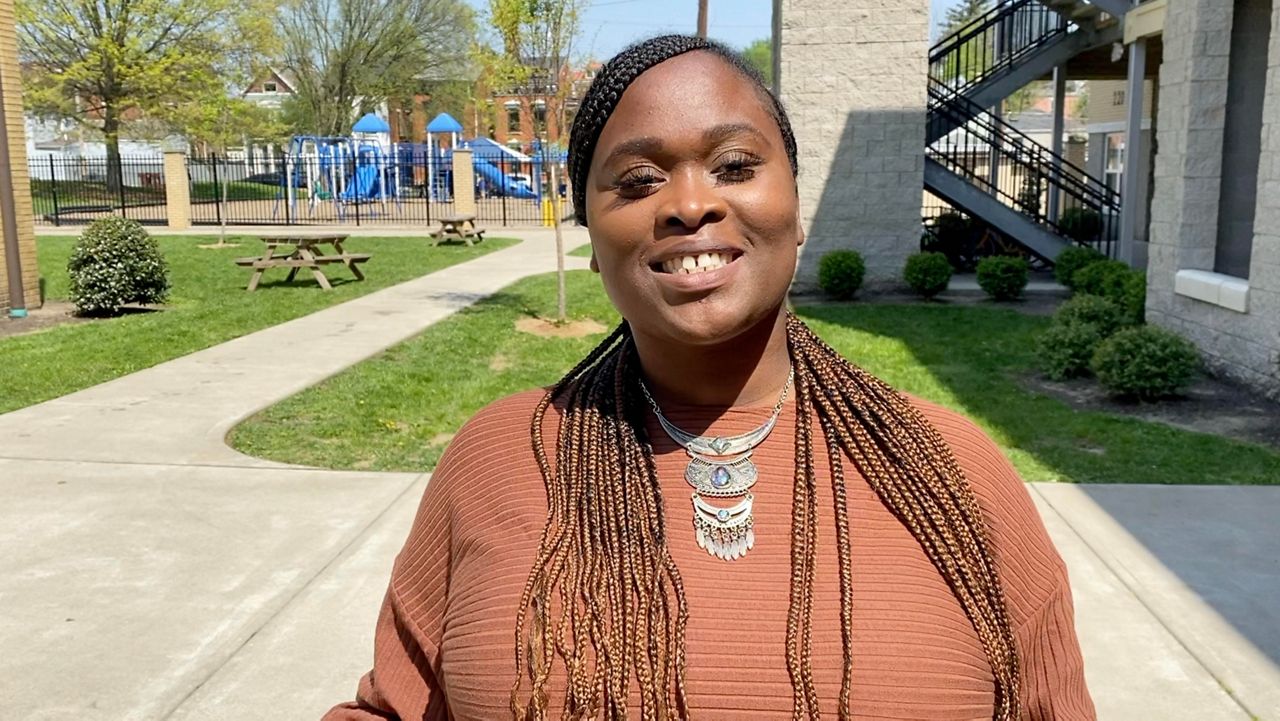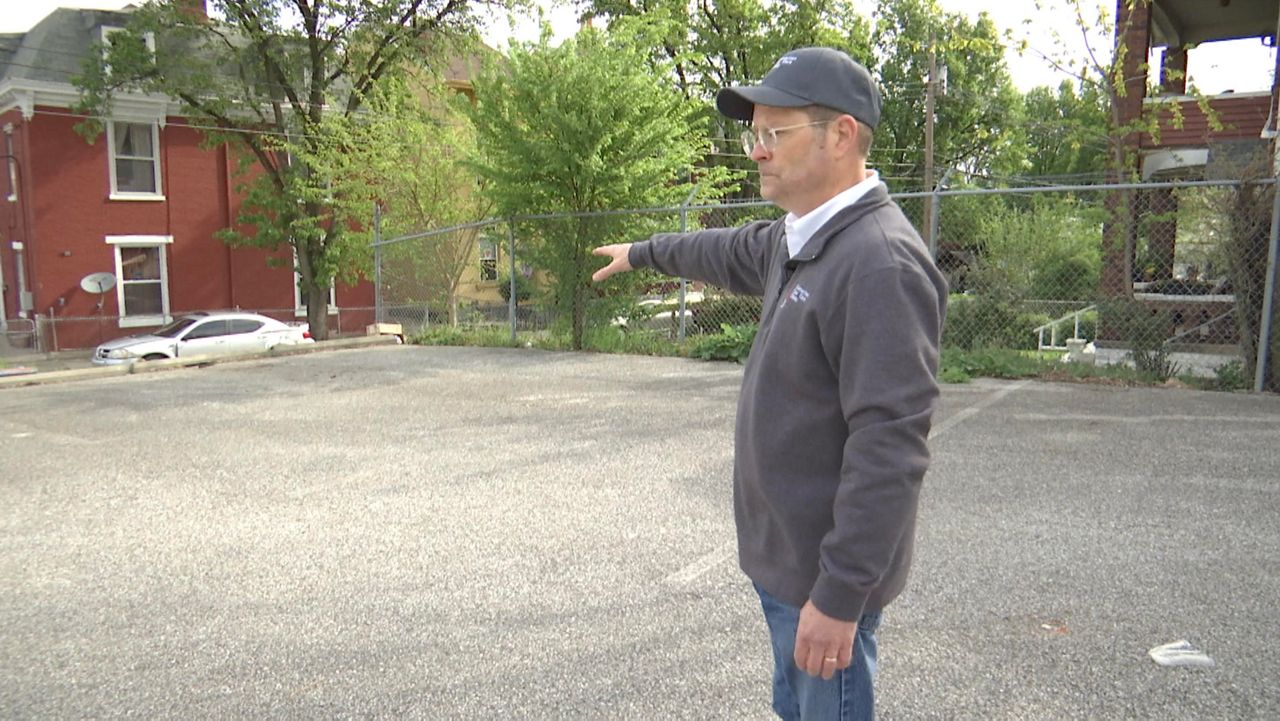COVINGTON, Ky. — While car trouble always seems to come at the worst time, not being savvy under the hood and having to pay to fix it only adds to the frustration. For those who can’t afford to, minor problems quickly add up to large ones.
A northern Kentucky man is trying to offset that issue by giving reliable transportation to those who need it most in his community.
What You Need To Know
- Bruce Kintner started the Good Samaritan Car Care Clinic
- Its mission is to address transportation barriers that low-income families face
- Amanda Mills graduated nursing school after the clinic helped her secure a reliable car
- The clinic is opening a new auto body shop to help more people in Covington
It’s just an empty lot now, but Bruce Kintner said what’s going to be at the corner of Martin Street and Madison Avenue in Covington is going to help him change lives.
That’s something he’s already been doing for years, but having his own auto body shop means he and his team will be much better equipped to meet their high demand.
“We’ll be able to begin helping low-income families right here,” Kintner said.
He’s the director of the Good Samaritan Car Care Clinic. Its mission is to address transportation barriers that low-income families face to stay on the path to economic stability.
In April, thanks to the donations of community partners, Good Samaritan Car Care Clinic broke ground on what will be its own four-bay mechanic shop. Kintner said the goal is for it to be up and running in October.
“We’ve got to figure out a way to scale this up to help more low-income families stay on that path to self-sufficiency,” he said.
The clinic started in 2007 at Madison Avenue Christian Church, where Kintner attended.
A minister there told him single moms were coming to the church and asking for help with their cars.
“And he turned to me and said, ‘Bruce, you’re mechanical. Figure this out,”’ Kintner said.
That’s when he approached Dave Brownfield, the owner of Walther Auto Body, to ask if he could borrow Brownfield’s shop a few times a year to help those in need.
“I’m offering to do some free oil changes for some low income single moms,” Kintner said. “What distressed me was, these ladies, just for lack of knowledge, they’re smart, but they lack knowledge, and lack of money, and they drive the car into the ground.”
The clinic got some fundraising traction a couple of years ago from the Butler Foundation, RC Durr Foundation and the Carol Ann & Ralph V. Haile, Jr. Foundation.
For 15 years, it’s been a virtual clinic. Kintner orchestrates maintenance and repairs at partner auto body shops like Glen’s Chevron and Walther Auto Body in Covington. He’s also done maintenance clinics at these shops. His team has grown to about 24 volunteers.
They cover the cost on a sliding scale based on the income of people they help, working on a shared cost basis with the shops when at all possible.
The clinic also has several referral partners, including Brighton Center, Lincoln Grant Scholar House, Life Learning Center, St Vincent DePaul Northern Kentucky and Gateway Community College.
When cars are too far gone to work on, the clinic even helps provide donated cars to its clientele.
“I have a waiting list of single moms desperately needing a car. So if we get something that is at least repairable, we’ll work on it, and then try to offer that to one of the ladies on our wait list,” Kintner said.

A few years ago, single mom Amanda Mills, who lives at the Lincoln Grant Scholar House, was one of those people.
Mills was in nursing school at the time and had to get four sons to where they needed to be daily. Suddenly, not having a car surely would’ve been a disaster.
“It broke down on the side of the road. I think the radiator busted,” Mills said. “Clinicals [were] about to start for my nursing program. I don’t want to be held back. I was just very depressed, but I still kept the faith.”
In came the Good Samaritan Car Care Clinic, which helped Mills secure a 2007 Lincoln MKZ at a low price, matching the $2,000 she had saved up to also cover the repairs needed.
“It was a huge load off of me, just because I know as women we’re taken advantage of, just by different car mechanics or car salesmen if you don’t have the knowledge,” Mills said.
Kintner also taught her some basic upkeep at one of the education sessions, including when to change fluids, when to get brakes looked at, when to get tire pressure checked and when to get new tires.
“I think it’s so good for the community. Like he had said, we help people to go up. We don’t push them down. And I feel like it makes people feel valuable, regardless of what income they may have, or what background they may come from,” Mills said. “That’s where it starts at. Somebody just caring. And I’m glad that he cares.”
The car is currently still in great shape, and Mills is now a registered nurse, having just graduated in December.

“I would say that it made me a strong person. It built my character, because it made me see the value of hard work,” she said.
The space at Martin Street and Madison Avenue might just be an empty lot now, but Kintner said he sees the potential for a lot more success stories like Mills’.
Kintner said the clinic helped 227 low-income families last year and said the new shop will help 250 to 300 families every year.
Even with the new shop, Kintner said the clinic will have more demand than it can handle, and will continue to outsource to partner shops.



